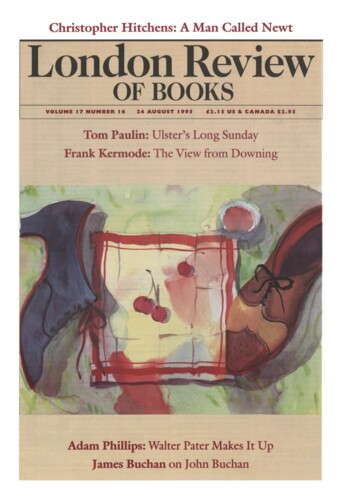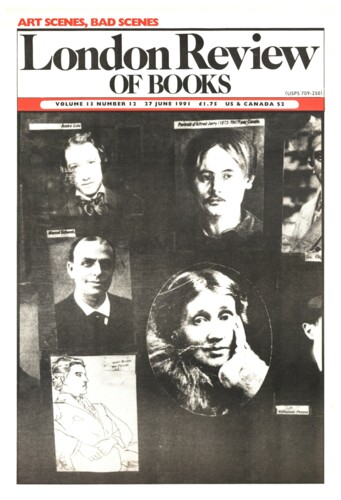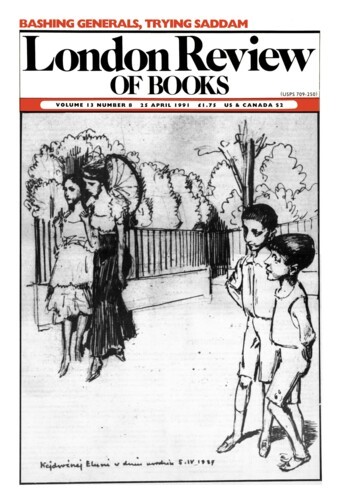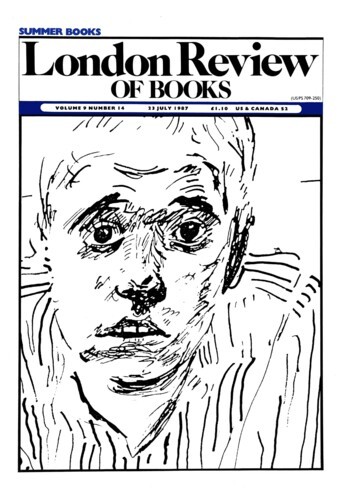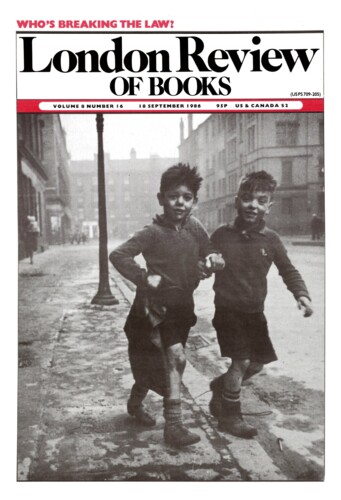Tam Dalyell
Tam Dalyell, who died in 2017, was Labour MP for West Lothian and then, when the boundaries were redrawn, Linlithgow. He was elected to the Commons in 1962 and became private secretary to Richard Crossman, about whom he later wrote a biography. He was known for positing the West Lothian question (whether MPs from the devolved countries of the UK should be able, post-devolution, to vote on strictly English matters) and for his consistently anti-war position. The Belgrano Diary, an LRB podcast presented by Andrew O’Hagan, investigates Dalyell’s role in uncovering the Thatcher government’s lies about the sinking of the warship during the Falklands War. He wrote several pieces about this controversy for the LRB, including this Diary. He liked writing for the paper, he said elsewhere, because ‘it is one of the few publications in Britain that allow a writer to return to old ground.’
Easter Island Revisited
Tam Dalyell, 27 June 1991
In my 29 years as a Member of the House of Commons, I can recollect only one occasion when I have broken out in a cold sweat of anxiety. It was on a Saturday morning, at home, when I was shaving and listening to the 7 a.m. BBC Radio News. Headline Number One: a senior civil servant had been taken into custody for an alleged breach of the Official Secrets Act.
Tam Dalyell gives reasons for postponing a Te Deum
Tam Dalyell, 25 April 1991
If you were a Kurd, perched on a mountain hillside, with ailing or dead parents, and suffering children, would you thank Mr Bush? I use his name generically for the British and Americans, and those Arabs who were swept along by us – initially, at any rate, against their better judgment – into a shooting war. The question is rhetorical. You would feel the kind of anger that the Jews felt as they risked their lives to get to Palestine on unseaworthy tubs zig-zagging towards Haifa in the late Forties.
Diary: Questions for Mrs Thatcher
Tam Dalyell, 23 July 1987
I spent half the period of the General Election in my Linlithgow constituency and other Scottish seats, and half campaigning in some thirty English marginal seats. So much has been written on the North-South divide, and the fact that great cities such as Manchester, Liverpool, Newcastle and Glasgow have no representative of the governing party, that I need not dwell on what is since 11 June familiar ground. I wonder, however, whether everyone in England understands the extent to which the result in Scotland was determined by the immediate prospect of the community charge, or as it is now known even in the most fastidious financial circles, the ‘poll tax’. It is one thing to have sentences about a rather obscure ‘community charge’ buried in the Manifesto. It is quite another to be an early guinea-pig on whom an experiment is about to be conducted. The Scottish poll-tax legislation was actually through Parliament, and on the statute book. What in England was perceived as scaremongering when I spoke about the poll-tax was received in Scotland – rightly – as an all-too-imminent reality.’
Diary: Yesterday’s News
Tam Dalyell, 18 September 1986
One of the reasons I like being asked to write for the London Review of Books is that it is one of the few publications in Britain that allow a writer to return to old ground. Most papers insist on the semblance, at least, of some new slant, if not on new facts. Otherwise it’s yesterday’s news. The situation has, I believe, dire consequences for public life. Those in power come to believe that because the world is always ‘moving on’ they will not be held accountable for their actions. Chickens do not come home to roost any more.
Pieces about Tam Dalyell in the LRB
Tam, Dick and Harold
Ian Aitken, 26 October 1989
Not long ago, a very distinguished academic reviewer suggested in these pages that one of the troubles with the Labour Party under Neil Kinnock’s leadership was that it was no longer the...
After the Battle
Matthew Coady, 26 November 1987
Politics is as much about losers as winners, which is why the defeated repay attention as much as the victors. The vanquished, moreover, are usually more candid. In their accounts the bruises...
Seductive Intentions
John Ziman, 2 August 1984
‘Science policy’ is not quite a contradiction in terms but it contains within itself a dialectical opposition between careful planning and the exploitation of opportunity. One might...
A military historian, Brian Bond, looks at the Falklands war
Brian Bond, 3 March 1983
A recent bibliographical review of the Spanish Armada concluded that at last the evidence available permitted definitive judgments on the episode from both sides. Such a long interval may be...
Read anywhere with the London Review of Books app, available now from the App Store for Apple devices, Google Play for Android devices and Amazon for your Kindle Fire.
Sign up to our newsletter
For highlights from the latest issue, our archive and the blog, as well as news, events and exclusive promotions.
